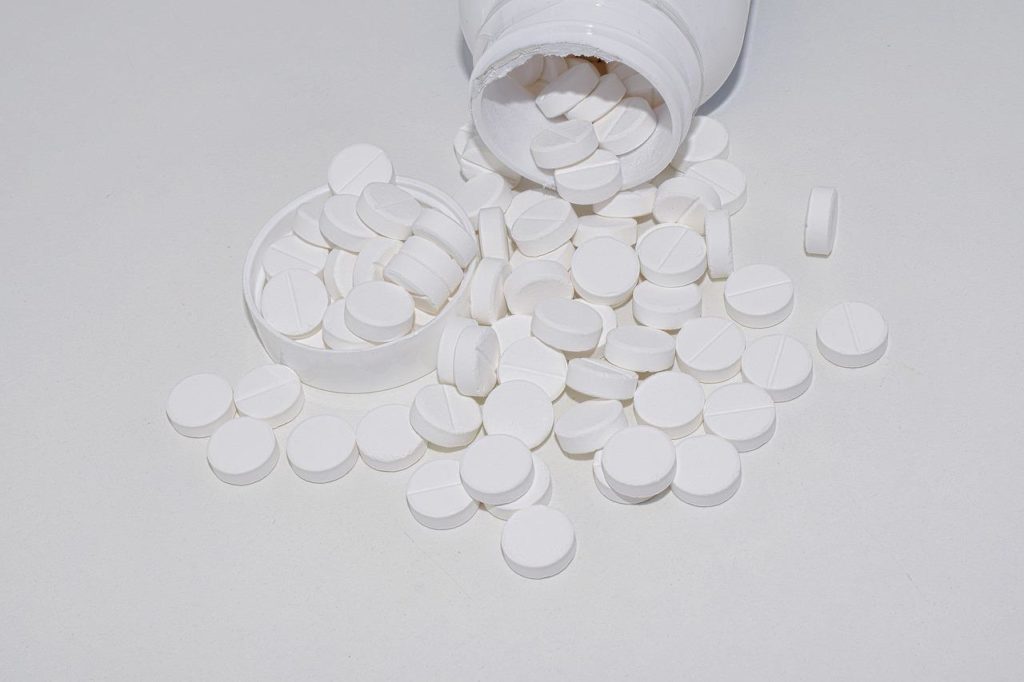
How Magnesium Can Relieve Stress and Anxiety
While we have made so many advances in our health over the past century, one area is seriously lagging: our daily intake of magnesium.
Magnesium is essential for more than 600 metabolic functions that we all take for granted. One of those is alleviating our levels of stress and anxiety. This mighty mineral fires up several mechanisms that make us feel calmer and more rested while helping our brains cope better with the world around us.
Some doctors have even dubbed it Mother Nature’s version of Valium. In the right dosage, this mineral can be as effective for treating depression as a prescribed antidepressant. Yet the average American – a shocking 75 percent of us – is only getting 200 milligrams a day, compared to the 500 mg our grandparents ingested. We are also experiencing much higher rates of anxiety.
Could the cure to some of this anxiety lie in adding more magnesium to our diets?
How has magnesium deficiency become so common around the world?
● When we’re chronically stressed, we release more magnesium in our urine.
● Fluoride in our drinking water attaches itself to magnesium, making it harder to digest.
● Refined foods strip magnesium out of healthy ingredients, and most cultures are eating more of these items.
● Crops grow in soil that is increasingly depleted of key minerals.
● Certain medications block the absorption of magnesium or pass it through the body before it’s used.
● People with diabetes, celiac, Crohn’s disease, and irritable bowel syndrome don’t process it efficiently.
How Magnesium Relieves Anxiety & Stress (detailed guide)

Photo courtesy of Ephraim Mayrena via Unsplash.com
Watch for these symptoms to see if you have a magnesium deficiency:
● reliance on caffeine to stay alert
●. dark circles under your eyes
● anxiety or panic attacks
● brain fog
● constipation
● cravings for salt
● feeling tired yet “on edge”
● going weak or tired after exercising
● frequent headaches, including migraines
● heart palpitations
● low tolerance for stress
● inability to sleep soundly or feeling tired even when you do
● lack of focus and concentration
● low blood pressure or blood sugar
● cramping or tight muscles
● restless leg syndrome
The Best Food Sources to Get More Magnesium
You can easily add magnesium to your diet by eating more of these foods, according to the U.S. National Institutes of Health. Each one offers 10 percent of the daily requirement:
● peanut butter
● baked potato
● brown rice
● unsweetened yogurt
● pumpkin seeds
● chia seeds
● almonds
● spinach
● cashews
● peanuts
● shredded wheat cereal
● soy milk
● black beans
●edamame

Photo courtesy of Fernando Andrade via Unsplash.com
If you’ve heard that legumes and other seeds and grains boost your magnesium intake, think again. They also contain phytates that keep this mineral from being absorbed easily. Chocolate is also often touted as a good source of magnesium but it is not as healthy as the options listed above.
Why magnesium matters?
While magnesium helps your body in hundreds of ways, there are seven essential reasons that should motivate you to get more of it into your system. Most of them relate to healthy brain function and mental health, plus fighting off causes of major chronic diseases.
As you will see, by adding magnesium to your diet in natural ways, you can expect to feel more relaxed, rested, and resilient. This single change could reduce your anxiety and put you more in control of your life.
1. Magnesium boosts your brain’s plasticity
A nimble brain helps you process information more quickly and in context, aiding you to cope better in daily life situations. Magnesium helps your brain build new cells and create better connections between those cells.
According to the Journal of Neuroscience, this helps you deal better with anxiety disorders, such as phobias and post-traumatic stress disorder. Having a magnesium-rich brain aids your amygdala – your brain’s alert center – to differentiate better between real and perceived threats. It also helps you dial down your anxiety and rewire your brain once you start treatment for these disorders.
2. More magnesium means fewer stress hormones
When your body fires up the stress hormone cortisol to cope with stress, it leads to the inability to concentrate, reason, and remember. Over time, this means further anxiety, brain fog, sleep loss, depression, mood swings, and even dementia.
You can use magnesium to suppress the release of these hormones and to block them from entering the hippocampus, the brain’s hub for learning and memory. As a result, you deal with less “kindling” to your anxiety and stress levels. Without magnesium, you are more likely to create a cascade of stress responses that heighten each other.
3. Magnesium reduces inflammation
Research has shown that proper doses of magnesium lower the number of inflammatory markers, particularly in middle-aged women who carry extra weight. If inflammation takes hold in the brain, it can lead to neurological and psychiatric disorders, such as anxiety, depression, schizophrenia, bipolar disorder, and Alzheimer’s disease. Doctors have found a link between people with physical illnesses and clinical depression.
These markers, also known as cytokines, create inflammation in the brain, then destroy cells there that ultimately change brain function. The correlation between these cells and mental health has been tied to levels of anxiety, depression, memory loss, mood swings, inability to concentrate, schizophrenia, bipolar disorder, and a higher risk of suicide.

Photo courtesy of Afif Kusuma via Unsplash.com
Additionally, low levels of magnesium lead to tight and cramping muscles, which can release cortisol and its stress-related companion epinephrine. This sets the stage for a need to “fight or flight” when faced with real or perceived stress. Taking magnesium relaxes muscles so they can respond more in line with the stimuli around you.
4. Magnesium boosts depression-fighting serotonin
Healthy doses of magnesium raise levels of serotonin, which is often referred to as the “happiness hormone.” In one study, researchers found that levels of magnesium differed measurably in the patients who attempted suicide and those with depression who did not.
Treatments using magnesium glycinate and magnesium taurinate have proven to speed up the development of vital pathways in the brain to alleviate depression and anxiety. Magnesium taurinate also supports a healthy cardiovascular system.
5. Magnesium stabilizes blood sugars
If your blood sugars are shooting up and then dropping down, it can feel like a real rollercoaster. By taking magnesium daily, you get off that ride and face fewer mood swings as a result.
The mineral evens out the release of glucose to your bloodstream so you have fewer spikes. This steady stream of fuel to your body allows it to operate more efficiently. It also lowers your risk for diabetes and metabolic disease.
With more physical stability, you should be able to respond with less anxiety or nervousness when you feel off-kilter.
6. Magnesium makes your neurotransmitters work better
When your brain processes its signals well, you can easily tell when to worry and when to relax. However, sometimes the worrying switch stays turned on, especially when your magnesium levels are low.
Once you start getting enough magnesium, your gamma-aminobutyric acid (GABA) receptors slow down your brain so you can decompress and sleep better. Without this skill, you stay on high alert and become overwhelmed, disorganized, and plagued by racing thoughts. This can culminate in physical symptoms, such as panic attacks, irritable bowel syndrome, and muscle twitches.
7. Magnesium helps purge you of heavy metals
Exposure to mercury, lead, and aluminum can lead to an accumulation of these toxins in your nervous system, inducing stress, disrupting mitochondrial function, and impairing the ability of numerous enzymes to fulfill their roles. However, magnesium attaches itself to these metals and guides them out of your body before they can get to your brain.
This housekeeping role is a great way to prevent physical and mental illnesses before they start.
How much magnesium do I need?
The Recommended Dietary Allowance (RDA) for magnesium is typically 420 mg for men and 320 mg for women. However, if you are deficient, you may wish to take a higher dosage until your symptoms clear up.
Start with the recommended dose then increase it slightly over several days until you feel it is upsetting your bowels. Never take more than 1,400 mg per day.
Sources of magnesium beyond your diet
Even if you add the recommended magnesium-rich foods to your diet, you may wish to get more from other sources. You can turn to mineral water or supplementals to boost your levels, but make sure you take the right ones.
Water from natural springs will have more magnesium that is not inhibited by fluoride. You can also seek out mineral water, such as San Pellegrino, Perrier, Fuji, and Evian brands, or Gerolsteiner sparkling water. One liter will give you a quarter of your daily requirement but you can check each brand’s levels here.
When it comes to supplements, they are not made equally. With so many options on pharmacy shelves, you may not know which ones to trust. Here is my advice:
Avoid magnesium oxide and magnesium sulfate
They are the cheapest options out there for manufacturers and tend to work best as laxatives. Your body will not absorb 96 percent of magnesium oxide so find one that does more for you. As for magnesium sulfate, it should only be used for soaking in a bath, not inside your digestive system.
Take magnesium L-threonate for best brain health
This form of supplement travels easily into your brain’s cells to work its magic to help you clear your thoughts and to cope better with stress and anxiety. Read the ingredient list for ones that contain Magein.
However, it does not boost your magnesium levels in other parts of your body, so you may want to double up with another supplement. It may also make you drowsy when you first start taking it so don’t plan to drive after your initial doses.
Best options for the rest of your body
The three best types of magnesium, ranked by their bioavailability, are magnesium taurate, citrate, gluconate, and malate. You can check the most effective brands on this list.
Here are the best types for calming you and helping you relax and sleep:
- magnesium taurate – also helps with high blood pressure and heart arrhythmia
- magnesium malate – also addresses fatigue and fibromyalgia
- magnesium glycinate – also ranked high for boosting overall levels
If you’re looking for an easy application, this blend called EASE can be applied with a quick spray to help you relax at any time of day, but especially when you are getting ready to snooze. Working with your nervous system, magnesium (supplied with each bottle of EASE) lowers stress hormones like cortisol and adrenaline and fulfills any deficiency that is linked to spikes in these hormones. It is made with the same magnesium you’ll find in the Dead Sea, and it has been on Earth since its creation. It is 100% natural, purified, and healthy.

In conclusion
There is no doubt that you will benefit from taking in the right amount of magnesium to sharpen your brain, fight off chronic diseases, and alleviate your stress and anxiety. You can tackle it with your diet, drinking water, or supplements, as long as you do your homework first.
The links in this article can help you find your motivation and the solution that works best for you.
Resources:

-
Modern Holistic Health
3267 Bee Cave Rd, Ste. 107-187 Austin, TX 78746 - 512.550.7933 | (888) 260-3377
- [email protected]








